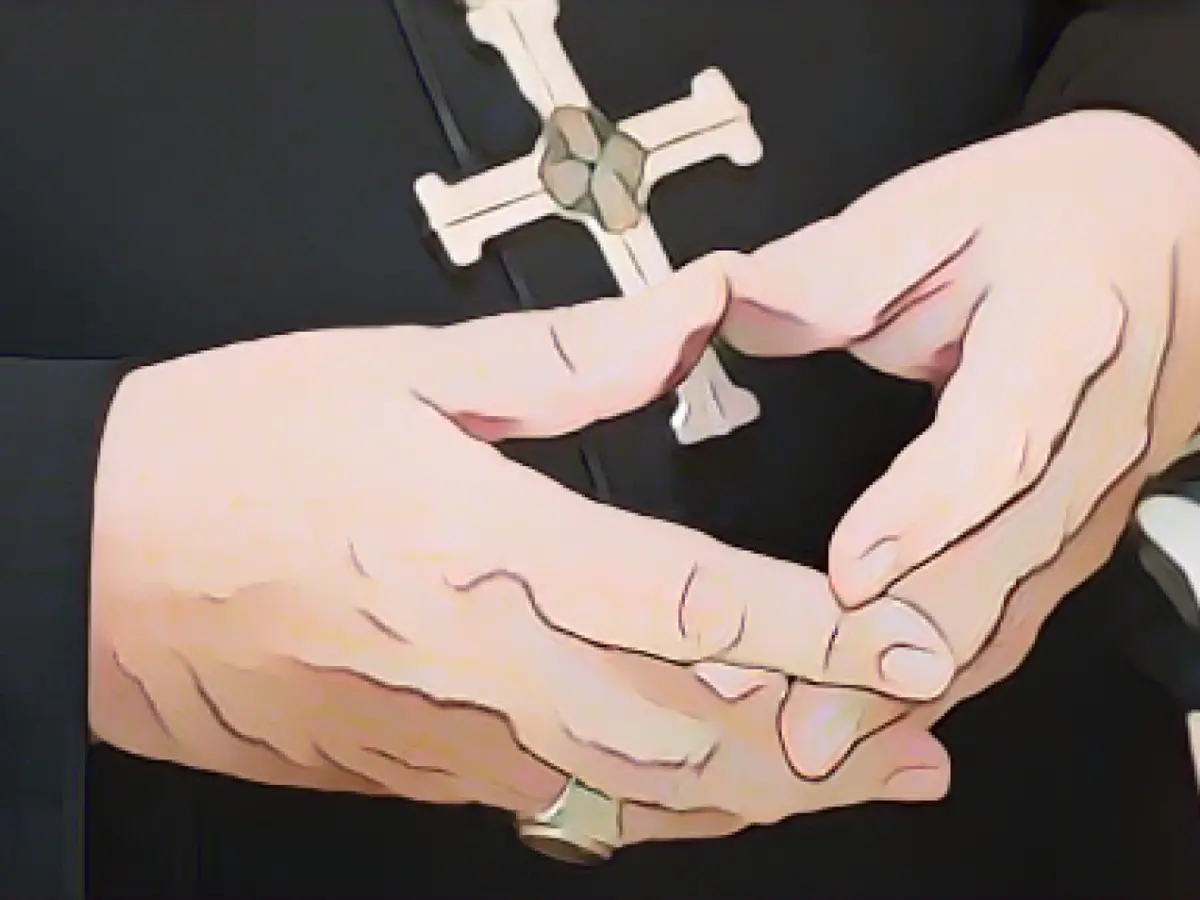Church - War and peace the subject of Christmas services
Appeals for peace and calls to overcome violence have dominated the Bavarian bishops' Christmas sermons this year. "Violence and war cannot create lasting peace," said Cardinal Reinhard Marx from Munich.
Despite the necessary right to self-defence, it must also be clear that peace can only be found by overcoming violence, emphasized the Archbishop of Munich and Freising. This in turn requires a willingness to find a just balance, a just peace, a new, perhaps even reconciled coexistence. This applies everywhere - "more weapons will not bring us closer to peace", said Marx.
Marx went on to say that many doubted whether those responsible in politics were in a position to solve the major challenges in the world - war and peace, climate change, migration movements, polarization in societies. However, he warned against following overly simple answers or apportioning blame - even if the temptation is great in such a situation.
Protestant Bishop Christian Kopp focused on the situation in Israel and Gaza on Christmas Day. "Peace cannot be taken for granted. The whole world has had to learn this painfully over the last two years. We knew it, but now it has come so close to us again," said Kopp, who preached in St. Matthew's Church in Munich on Christmas Day.
"The suffering of the people in Israel cries out to heaven. The suffering of the people in Gaza - we cry out to God," Kopp continued. The world in the land of Jesus has come apart at the seams this year. The world in the Holy Land has long been out of joint. "We need sensible regulations for coexistence. Both sides will probably have to learn to live together in two states."
Bishop Franz Jung of Würzburg also urged people to live in peace in view of the wars in the Gaza Strip and Ukraine. Too often, he said, people lived in categories of competition and enmity and were dominated by envy and jealousy.
Georg Maria Hanke, the Catholic Bishop of Eichstätt, also sees the loss of importance of faith and the church in everyday life as a reason for humanitarian problems: "Forgetting the good news of God made man or suppressing faith in him from public life and only allowing this faith space in private promotes the numbness of hearts and has an impact on the understanding of human dignity and humanity," he said. "Developments in our secular culture and its legislation, which superficially appear to enable greater freedom, are in essence a dismantling of humanity."
In Augsburg Cathedral, Bishop Bertram Meier referred to St. Francis. According to Meier, the saint began where Jesus began: With the poor, the sick and the weak. "Francis follows in the footsteps of Jesus. In doing so, he is blazing the trail for us," said Meier in his sermon.
In his sermon on Christmas Eve, the conservative Bishop of Regensburg, Rudolf Voderholzer, asked "for the strength to renew the Church of our day in faith, hope and love", according to a statement from his diocese.
In the view of Passau's Bishop Stefan Oster, the world urgently needs the Church and its message right now: "The world is in crisis," he said in the service on Christmas Day: wars in several places at once, climate crisis, pandemics - and the Church itself is "perhaps in the greatest crisis since the Reformation".
The future Archbishop of Bamberg, Herwig Gössl, remembered not only the victims of violence, wars and terror, but also those affected by sexualized violence. These people "remain silent because they repress what has happened, out of shame and despair", said Gössl. With his silence, God stands by those who have been silenced.
Press page ELKB
Read also:
- A clan member is punished here
- Traffic lawyer warns: Don't talk to the police!
- Will he be convicted as Jutta's murderer after 37 years?
- He also wanted to kill his cousin
- The Bishop of Freising, a part of Bavaria, echoed the Catholic Church's stance on war and peace, stating that more weapons will not bring peace.
- During his Christmas service in Munich, Protestant Bishop Christian Kopp focused on the situation in Israel and Gaza, expressing concern for the suffering of people in both regions.
- The Archbishop of Munich and Freising, emphasizing the need for overcoming violence, suggested finding a just balance and coexistence as a means of achieving lasting peace.
- In his Christmas sermon, Bishop Rudolf Voderholzer of Regensburg called for renewing the Church in faith, hope, and love, as it navigates through current crises.
- The Bishop of Eichstätt, Georg Maria Hanke, attributed some humanitarian problems to the loss of faith's significance in everyday life, stating that suppressing faith impacts the understanding of human dignity and humanity.
- Bishop Franz Jung of Würzburg urged people to live in peace in the face of wars in Gaza and Ukraine, criticizing the prevalence of competition, enmity, envy, and jealousy in human relationships.
- Concerned about the Church's current crisis, Passau's Bishop Stefan Oster emphasized the world's need for the Church and its message, stating that the Church is essential during this time of global crises.
- Herwig Gössl, the future Archbishop of Bamberg, in his Christmas Eve sermon, prayed for strength to help innocent victims of violence, wars, terror, and sexualized violence speak out about their suffering.
Source: www.stern.de








